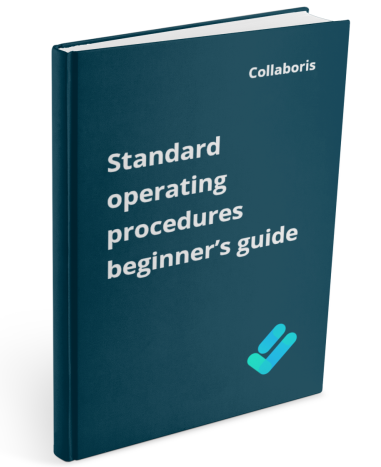Best Practices for Policy Change Management in SharePoint Managing policy documents efficiently is crucial ...
Policies and Procedures - Building Ownership and Accountability

Strategies for Encouraging Employees to Take Ownership of Policies and Procedures
Encouraging employees to take ownership of policies and procedures is crucial for fostering a sense of responsibility and accountability within an organization. When employees feel a personal connection to the policies and procedures, they are more likely to adhere to them and actively contribute to their improvement. Here are some strategies to promote ownership:
- Communication and Transparency: Openly communicate the purpose and importance of policies and procedures to employees. Clearly explain how these guidelines align with the organization's goals and values. By providing transparency, employees can understand the rationale behind the policies and feel more invested in them.
- Employee Involvement: Involve employees in the creation and review of policies and procedures. Seek their input, suggestions, and feedback during the development process. This involvement not only enhances the quality of the policies but also fosters a sense of ownership among employees as they see their ideas being valued and implemented.
- Training and Education: Provide comprehensive training and education on policies and procedures. Ensure that employees understand the reasoning behind each policy and how it contributes to the overall success of the organization. By equipping employees with the necessary knowledge, they will feel more confident in following and enforcing the policies.
- Recognition and Rewards: Recognize and reward employees who consistently demonstrate adherence to policies and procedures. Acknowledge their efforts publicly and highlight the positive impact they have on the organization. This recognition motivates other employees to take ownership and strive for compliance.
- Lead by Example: Leaders and managers should lead by example and demonstrate their commitment to policies and procedures. When employees witness their superiors following the guidelines, they are more likely to emulate this behavior. This creates a culture where everyone takes ownership and understands the importance of compliance.
The Role of Employee Involvement in Policy Creation
Involving employees in the creation of policies not only enhances the quality of the guidelines but also fosters a sense of responsibility and ownership among them. When employees have a voice in policy creation, they feel valued and respected, leading to increased commitment and compliance. Here's how involving employees in policy creation can foster a sense of responsibility:
- Increased Understanding: By involving employees in policy creation, they gain a deeper understanding of the rationale behind each guideline. This understanding helps them see the bigger picture and appreciate the importance of adhering to the policies.
- Ownership and Accountability: When employees actively participate in policy creation, they feel a sense of ownership and accountability towards the guidelines. They become more invested in their implementation and are more likely to take responsibility for ensuring compliance.
- Improved Buy-in: Involving employees in policy creation increases their buy-in and support for the guidelines. They feel that their opinions and perspectives are valued, which leads to greater acceptance and adherence to the policies.
- Enhanced Problem-Solving: Employees who are involved in policy creation bring diverse perspectives and experiences to the table. This diversity fosters better problem-solving as different viewpoints are considered, resulting in more effective policies that address potential challenges.
The Role of a Culture of Accountability in Enhancing Compliance Efforts
A culture of accountability plays a vital role in enhancing compliance efforts within an organization. When employees understand the importance of compliance and feel accountable for their actions, they are more likely to adhere to policies and procedures. Here's how a culture of accountability can enhance compliance efforts:
- Clear Expectations: A culture of accountability establishes clear expectations regarding compliance with policies and procedures. Employees understand what is expected of them and the consequences of non-compliance. This clarity promotes adherence to guidelines.
- Peer Influence: In a culture of accountability, employees hold each other accountable for following policies and procedures. Peer influence becomes a powerful motivator for compliance, as individuals strive to meet the standards set by their colleagues.
- Open Communication: A culture of accountability encourages open communication regarding compliance issues. Employees feel comfortable reporting violations or seeking clarification on policies. This transparency helps identify and address compliance gaps promptly.
- Continuous Improvement: Accountability fosters a mindset of continuous improvement. Employees actively seek ways to enhance compliance efforts, suggesting improvements to existing policies and procedures. This commitment to improvement strengthens overall compliance within the organization.
By implementing strategies that encourage employee ownership, involving employees in policy creation, and fostering a culture of accountability, organizations can create an environment where compliance with policies and procedures becomes ingrained in the company's DNA. This not only enhances operational efficiency but also builds trust and credibility with stakeholders.
Creating a Culture of Engaged Compliance
The key points discussed above highlight the importance of establishing a mutually beneficial relationship between engaged employees and effective policy compliance. It is crucial for organizations to implement strategies that encourage active employee participation in policy management and compliance, in order to cultivate a positive culture.
You may also like:
April 8, 2024
February 12, 2024
The Importance of Employee Knowledge Management In today's fast-paced business environment, knowledge is a ...
January 30, 2024
Leveraging AI for Policy Writing SuccessIn the realm of policy writing, data and documentation ...
January 16, 2024
10 Essential Tips for Effective Policy Management: A Comprehensive Guide In today's fast-paced business ...
December 12, 2023
The urgency of establishing an AI usage policy In the ever-evolving landscape of business ...
November 15, 2023
Maximizing internal communicationsIn the modern business landscape, effective internal communication is the cornerstone of ...

